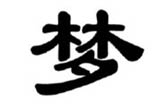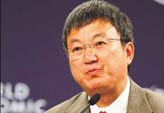One-way ticket to success
Updated: 2011-09-20 11:22
By Chen Nan (China Daily)
|
|||||||||
 |
|
Wu Bai at a performance in Xiamen, Fujian province, in 2005. Huang Shaoyi / Asia News Photo |

Rocker Wu Bai has been crafting pop and rock songs for 20 years and is still feeling inspired. Chen Nan reports.
Wu Bai says the best thing about being a singer-songwriter is the solitude he finds when he locks himself inside his recording studio, which produces a meditative state and inspiration.
While recording his latest album, One-Way Ticket, the Taiwan rocker hid himself away in the studio, along with his band China Blue.
After three months in the studio, he had lost weight and was in need of sleep, but the album was finished.
"I love the smell of the floor. I love the moment when I close the door, I feel peaceful," says Wu, 43.
"I never learned music formally but I have been in this industry for decades. The reason why I am still writing and singing songs is that I can always steal something from God."
True or not, he has always surprised his fans with new styles, looks and ideas.
Over the course of more than 20 studio albums, Wu has evolved from being a hard-edged rocker, to incorporating electronic sounds and pop, while fusing old Taiwan folk music with catchy love ballads.
After a three-year hiatus since his last release, Space Bomb, a sci-fi concept album, in which he used futuristic synthesizer sounds to go with vibrato and funky beats, he has returned to hard rock, straightforward lyrics and his signature nasal vocals.
When he showed up in Beijing lately, Wu was in his trademark black military suit, leather boots, his hair falling lightly over his eyes.
Wu is more talkative and expressive than most "cool" rockers.
"For years I have tried to avoid repeating myself. But this time I wanted to go back to the beginning and show the charm and power of rock 'n' roll, which I have been fascinated with since I wrote my first song back in the 1980s," he says.
Speaking of his latest songs - such as One-Way Ticket and Blue Moon - Wu says he has worked with many other artists but what makes him proud of his new album is that his collaboration with the band, China Blue, is still strong. They have worked together for 20 years.
The original band members that Wu calls his "tones" are Chu Chien-hui on bass, Dean Zavolta on drums and Xu Da-hao on the keyboard.
"They are an extension of my music. I felt great when we played together in the recording studio. It was a magic moment," he says.
Born in Chiayi, Taiwan province, Wu started out as a musician under his given name Wu Chun-lin. He moved to Taipei in the early 1990s and sang at Western-themed bars.
In 1992, he formed China Blue. His popularity soared thanks to his guitar-driven rock music and poetic, socially relevant lyrics.
His live performances at pubs throughout Taiwan earned him the title "King of Live" in the mid-1990s, when the Taiwan rock scene started to emerge and he sang rock songs in Taiwan dialect, or hoklo.
Wu admits that he has also made some catchy pop songs, which are looked down upon by other rockers, such as Wanderer's Love Song in 1994, one of his hits. For the new album, Wu remade the classic pop love song, Waking Up, and mixed it with rock beats.
"I am a weird person. I can write typical pop songs as well as alternative rock songs. I don't care too much about drawing a clear line between rock and pop. When I want to do hard rock, I can do it," he says.
Regardless of whether he's been making mainstream pop songs or avant-garde music, Wu has always been a rocker at heart, he says.
For One-Way Ticket, he drew inspiration from his one-way trip from his hometown Chiayi to Taipei. He keeps a narrative running through the album's 10 songs, casting himself and his band mates as observers of society and a mirror that reflects their progress.
"I am getting old and life's experiences have made me rich. I can say I'm sentimental, romantic and numb. All those feelings keep me moving on in songwriting," he says. "I never feel stuck creating music."
Wu also finds inspiration from designing, photographing and shooting his own videos.
Wu says his role in director Tsui Hark's movie, Time and Tide, 2000, in which he played a cold-blooded killer, was unforgettable. He also wrote a soundtrack for the movie. He says he loves challenges.
"I started making music because I didn't want to live an ordinary life, getting trapped in an office routine or staying at home feeding the children. Music allows me to hide in a world I create," he says.










